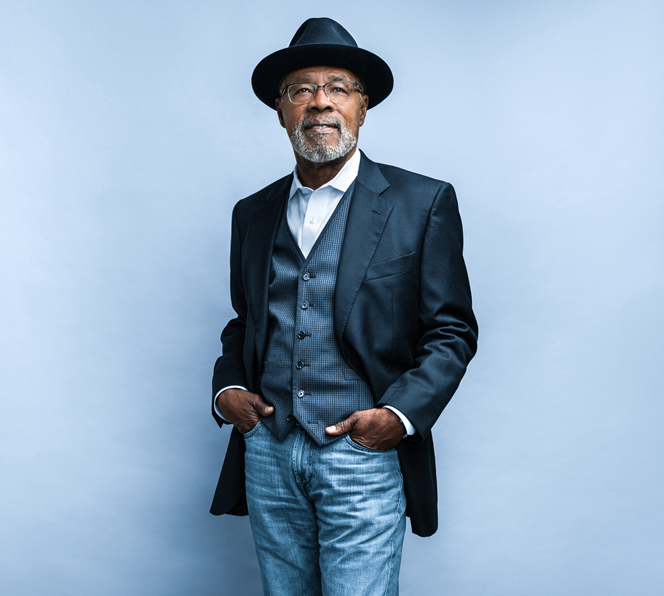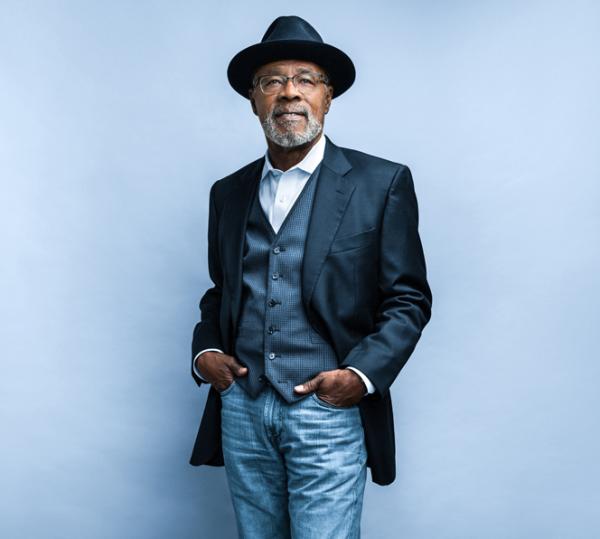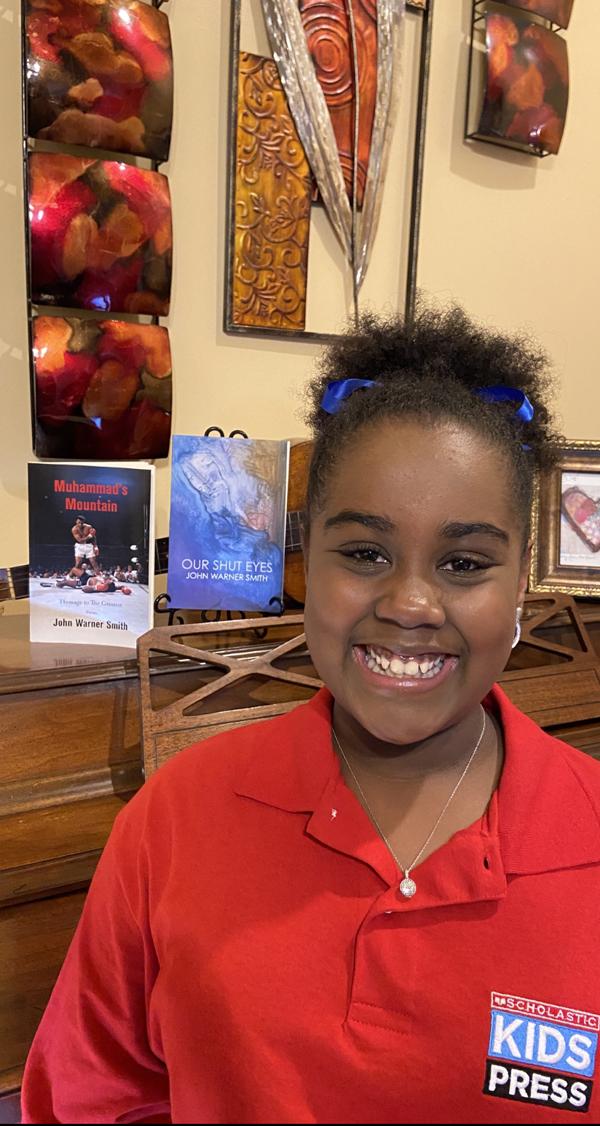KID REPORTERS’ NOTEBOOK
Celebrating National Poetry Month


John Warner Smith is the first African American man ever to be named Poet Laureate of Louisiana.
“Read! Read! Read!” That is the advice from poet John Warner Smith. In 2019, Smith became the first African American man ever to be named Poet Laureate of Louisiana. He believes that much can be learned from reading.
In honor of National Poetry Month, I spoke with Smith about his life and work. He is the author of five books, including Muhammad’s Mountain, Soul Be a Witness, and Our Shut Eyes.
National Poetry Month spotlights the achievements and legacy of American poets and encourages the reading and writing of poetry. The annual celebration, which was suggested by the American Academy of Poets, began in 1996.
BEARING WITNESS
With no formal training in creative writing, Smith began to write poetry in the late 1990s, when he was working as a banker and public administrator. That is when poetry discovered him, he said.
The discovery prompted Smith to attend writing workshops and programs and to earn a Master of Fine Arts degree from the University of New Orleans. Born in Morgan City, Louisiana, the poet is now 68 years old. He has lived through a brutal system of segregation and inequality in the United States, the civil rights movement, and the struggle for racial justice.
Some of Smith’s writings describe the worst of our country’s past and the inhumane treatment of African Americans. This excerpt from Smith’s poem, “Zydeco on Dog Hill,” evokes the cruel exploitation of Black workers in the South:
Before they put Cousin Gladys
inside the ground in a cornrow
of fair-skinned Creole men, I sat
in her funeral mass imagining
two shadows dancing in the swish
of a swift moving blade
that slit her dreams in half
and sent her father strolling
across the cane field
like a land-bending river, turning
a page she could never turn back:
news that a man had been killed,
her husband had been jailed.

Zhoriél with two of Smith’s poetry collections, Muhammad’s Mountain and Our Shut Eyes
“GO FOR IT!”
Despite the painful experiences he describes, Smith believes that his poetry can play a role in bringing people together. “I think my poetry can help bridge a gap between the differences that we experience between races and religion, and all that divides us,” he said.
Although he has won awards and praise, Smith’s only goal is for his poetry to be read. He says that he writes for the run-of-the-mill reader, although he has a wide-ranging audience. “I’m just hoping,” he said, “that my words can touch the lives of just ordinary, everyday people in some way.”
Helping teachers introduce poetry into the classroom is one of the main objectives of National Poetry Month. Poetry is a form of literature that is taught in schools and can help build vocabulary. There are many different types of poems that students can learn to read and learn to write.
“Never be afraid to be true to yourself,” Smith said. “If poetry is something that interests you, follow it. Go for it!”
